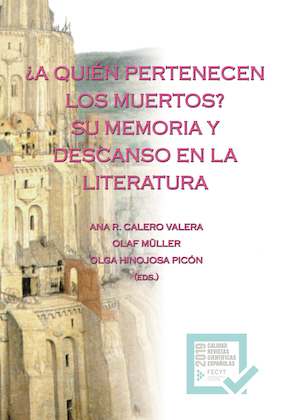Trivialisation and singularisation of death in the concentrationary literature
DOI:
https://doi.org/10.7203/qdfed.24.16341Keywords:
Concentration camps, Shoah, concentrationary literature, dehumanization, death Abstract
Abstract
In Nazi concentration camps the notion of death is disfigured and exceeds every limit traditionally rooted in human civilization. In fact, the idea that interprets death as the final and definitive individualizing principle of human experience categorically disappears and, rather, we face a mechanical, massive production of corpses. Through the testimonial corpus left by survivors, it is possible to reflect on their conception of their own –and others’– death. Exploring concentrationary literature, I would suggest that prisoners succeed in overcoming this systematic trivialization of death through the search of meaning regarding other deportees’ deaths. Survivors single out, personalize and claim certain fatalities as a mechanism to subvert Nazi power and assert the victims’ human identity. In order to delimit the object of study and to ensure a contextualized study, this paper mainly focuses on experiences and memories of Jewish survivors in the Auschwitz-Birkenau complex.
 Downloads
Downloads
Downloads
Published
How to Cite
-
Abstract669
-
PDF (Español)524
Issue
Section
License
 Este obra está bajo una licencia de Creative Commons Reconocimiento-NoComercial-SinObraDerivada 4.0 Internacional.
Este obra está bajo una licencia de Creative Commons Reconocimiento-NoComercial-SinObraDerivada 4.0 Internacional.
Authors who publish with this journal agree to the following terms:
- Authors retain copyright and grant the journal right of first publication with the work simultaneously licensed under a Creative Commons Attribution License that allows others to share the work with an acknowledgement of the work's authorship and initial publication in this journal.
- Authors are able to enter into separate, additional contractual arrangements for the non-exclusive distribution of the journal's published version of the work (e.g., post it to an institutional repository or publish it in a book), with an acknowledgement of its initial publication in this journal.
- Authors are permitted and encouraged to post their work online (e.g., in institutional repositories or on their website) prior to and during the submission process, as it can lead to productive exchanges, as well as earlier and greater citation of published work (See The Effect of Open Access).



